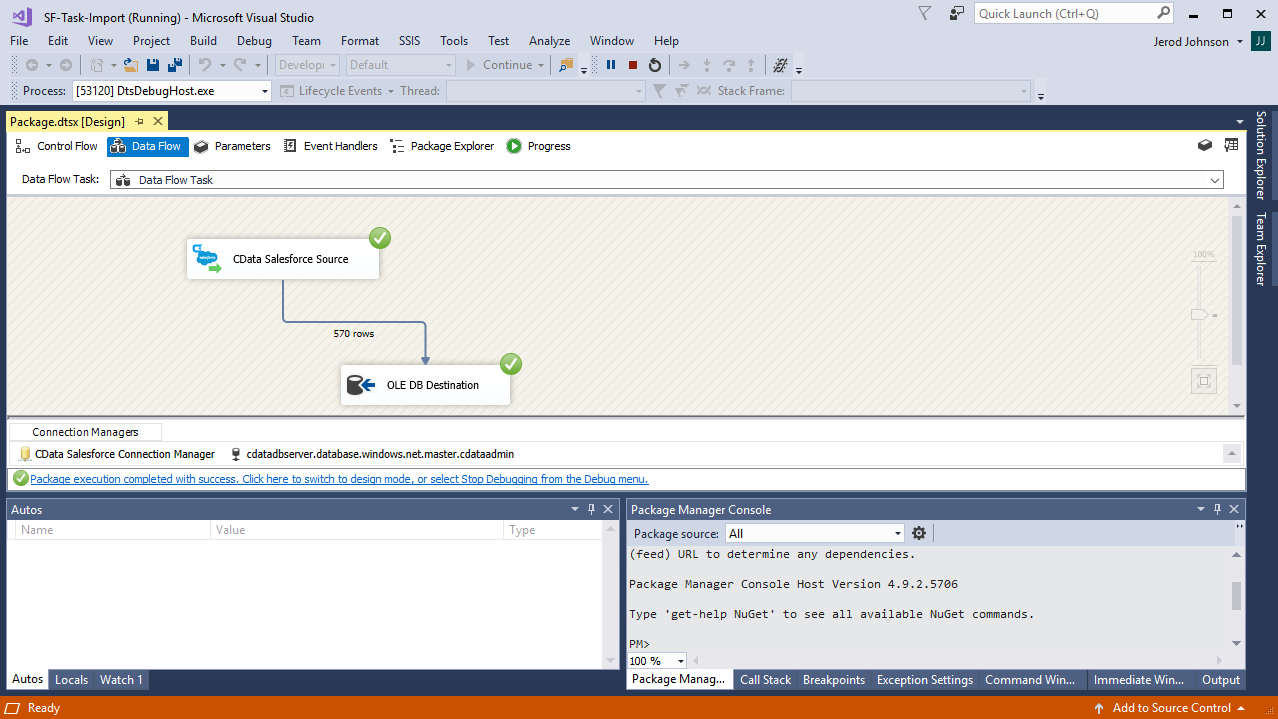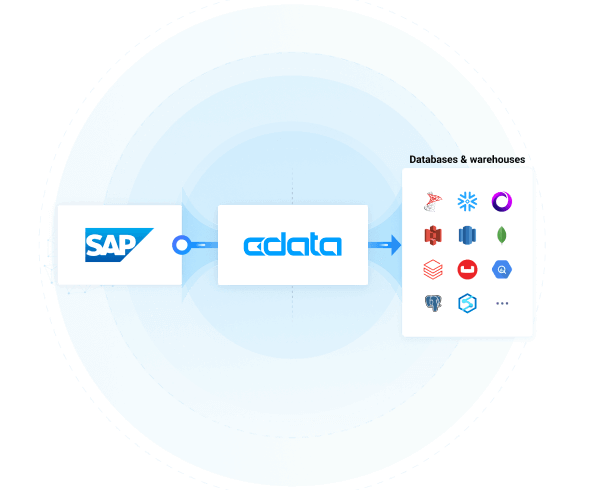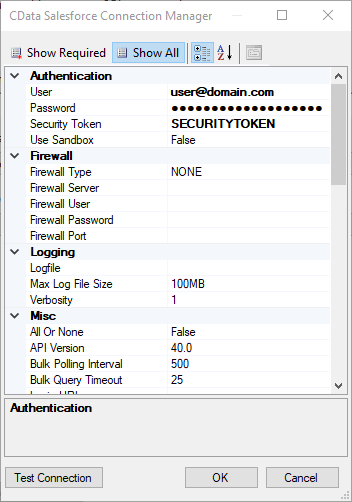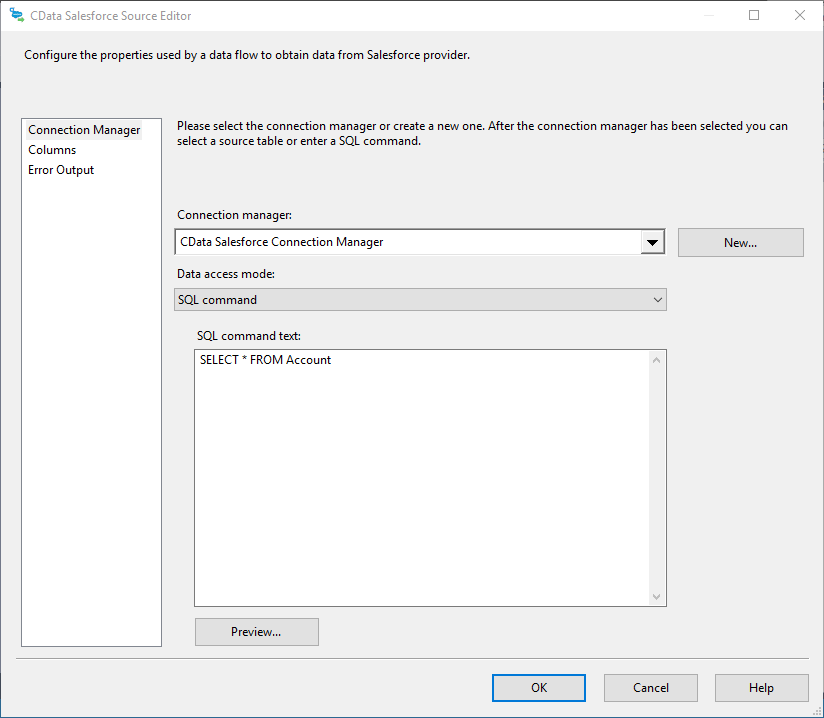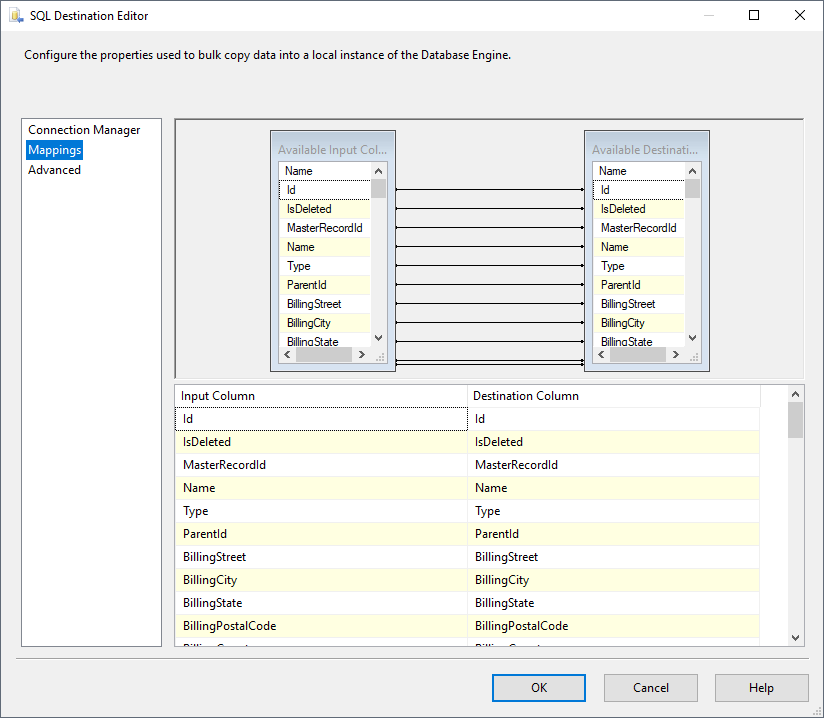Discover how a bimodal integration strategy can address the major data management challenges facing your organization today.
Get the Report →How to Import Microsoft Exchange Data into SQL Server using SSIS
Easily back up Microsoft Exchange data to SQL Server using the SSIS components for Microsoft Exchange.
Using SQL Server as a backup for critical business data provides an essential safety net against loss. Backing up data to SQL Server enables business users to more easily connect that data with features like reporting, analytics, and more.
This example demonstrates how to use the CData SSIS Tasks for Microsoft Exchange inside of a SQL Server SSIS workflow to transfer Microsoft Exchange data into a Microsoft SQL Server database.
Add the Components
To get started, add a new Microsoft Exchange source and SQL Server ADO.NET destination to a new data flow task.
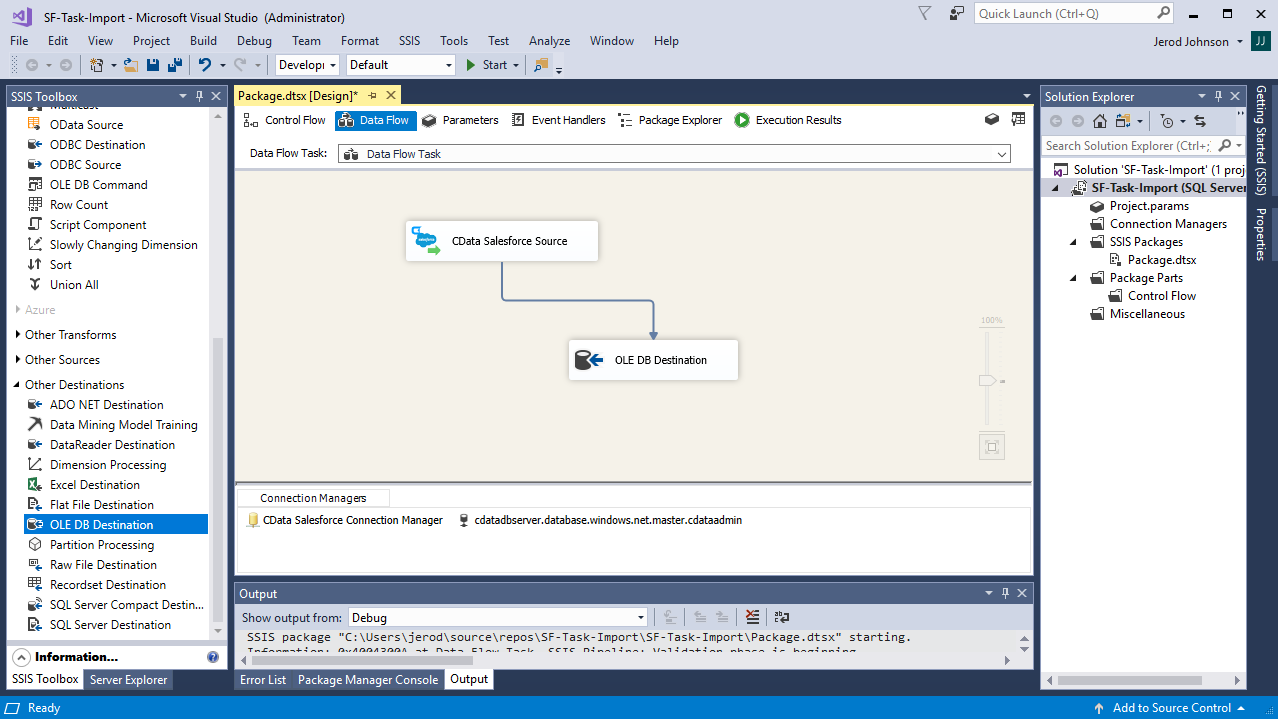
Create a New Connection Manager
Follow the steps below to save Microsoft Exchange connection properties in a connection manager.
- In the Connection Manager window, right-click and then click New Connection. The Add SSIS Connection Manager dialog is displayed.
- In the Connection Manager type menu, select Exchange. The CData Microsoft Exchange Connection Manager is displayed.
- Configure connection properties.
Specify the User and Password to connect to Exchange. Additionally, specify the address of the Exchange server you are connecting to and the Platform associated with the server.
![Configuring a connection (Salesforce is shown).]()
Configure the Microsoft Exchange Source
Follow the steps below to specify the query to be used to extract Microsoft Exchange data.
- Double-click the Microsoft Exchange source to open the source component editor.
- In the Connection Manager menu, select the connection manager previously created.
- Specify the query to use for the data extraction. For example:
SELECT GivenName, Size FROM Contacts![The SQL query to retrieve records. (Salesforce is shown.)]()
- Close the Microsoft Exchange Source control and connect it to the ADO.NET Destination.
Configure the SQL Server Destination
Follow the steps below to specify the SQL server table to load the Microsoft Exchange data into.
- Open the ADO.NET Destination and add a New Connection. Enter your server and database information here.
- In the Data access mode menu, select "table or view".
- In the Table Or View menu, select the table or view to populate.
- Configure any properties you wish to on the Mappings screen.
![The mappings from the SSIS source component to SQL Server. (Salesforce is shown.)]()
Run the Project
You can now run the project. After the SSIS Task has finished executing, your database will be populated with Microsoft Exchange data.
